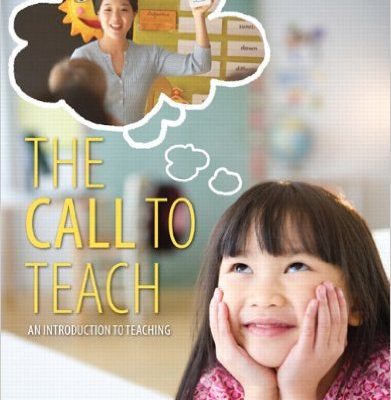2023 Best Master’s in Early Childhood Education Programs

Click here to find out more about the ranking methodology that we used to compile this list.
Congratulations! If you represent a college or university that is included in this list, please collect your seal below.
Deciding which college to attend can be a daunting task. For many, it will be the most important decision that they make in their lives. To make an informed decision, you have to consider a lot of variables, such as cost of attendance, financial aid, student/teacher ratio, academics, student life, and more. These factors will either positively or negatively impact the quality of education that you receive.
Do you want to acquire a master’s degree in early childhood education, but don’t know what institution you should attend? Well, if you are as ambitious as I was in my late teens, then you want to attend a top school, instead of an average or mediocre one. Fortunately, we have already done the legwork for you. To help you find the right school for your interests and goals, we’ve compiled a list of 2022’s best master’s in early childhood education programs.
What institution did we forget? Leave your thoughts in the comment section below.
The early childhood education master of science (MS) at the University of Albany is delivered by the Department of Literacy Teaching and Learning in the School of Education. Available on campus as well as online, this degree program helps learners build their expertise in teaching young children and preschoolers from birth through second grade. Designed for teachers who hold initial New York State teacher licensure, this degree program readies learners for professional licensure to teach infants through two-year-olds.
The master of education in early childhood education at the University of Minnesota’s College of Education and Human Development readies learners for birth through third-grade licensure. This degree program is intended for learners who are pursuing their first state teaching license. The coursework is focused on development theory, preparing teachers who can work with each child where he or she is in his or her educational journey. A capstone project is required, along with two student teaching experiences.
While enrolled in this degree program, all individuals the opportunity to teach at the Shirley G. Moore Laboratory School, an on-campus preschool that is offered by the Institute of Child Development. This experience not only provides learners with the real-life experience they need for state teacher licensure, but it also grants them the pathways necessary to work on additional career choice such as moving into school or district administration.
The University of Alabama, Birmingham is home to several nationally rated programs. The School of Education has an exceptional master of arts in education in early childhood education, which is designed for learners who already have bachelor’s degrees in education and possess current Class B licensure in the state of Alabama. Requiring 31–34 semester hours to finish, the coursework includes classes in critical pedagogy, language development, and reading. A final practicum is also required. This degree program is an outstanding pathway to a professional career and preparation for a PhD program in education.
Mercer University has a master of arts in teaching in elementary education degree. Designed for learners who have a bachelor’s degree and are seeking initial licensure at the master’s level, this degree program presents a holistic study of the knowledge and focused skills needed to instruct and support young children from birth through age five. Classes are intended to build each learner’s hypothetical and pedagogical body of knowledge, while incorporating assessment, research, and technology integration.
Each learner is required to finish a sequential series of field experiences in diverse settings. These are coordinated via the Office of Field Placement and can often be arranged depending on a learner’s location. The degree program grants admission to learners five times each year, offering learners maximum flexibility in earning their degrees. Classes can be pursued either part time or full time to accommodate teachers who are already working or are engaging in their required field experiences.
The master of arts in teaching at Biola University is an adaptable and real-life graduate degree that helps learners thrive as classroom teachers. This degree equips learners with the advanced knowledge and skills they need to become productive, impactful teachers. It comes with eight distinct concentration paths, allowing learners to select pathways that are perfectly customized for their backgrounds and career interests. It can be completed either entirely online or on campus or as a blend of both.
This degree requires learners to do action research studies within learning environments; this experience involves choosing a methodology, examining literature, and reporting research-based findings. Available concentration areas include early childhood, classes and instruction, and special education.
Northern Arizona University has an undergraduate enrollment of more than 27,000 learners, making it one of the largest institutions in the country. The school is a high-research institution that endeavors to improve lives and to design a diverse learning environment for all learners. The master of education in early childhood education at NAU is housed within the highly respected Department of Teaching and Learning. Early childhood learners at Northern Arizona University can select from several pathways, including a general emphasis, a leadership emphasis, a multiage emphasis, or a National Board preparation emphasis. Thirty credit hours are required for graduation, and each credit matters—every required class reflects an educational standard that learners are expected to meet to be ready to work with young children.
Classes are small, allowing learners to obtain plenty of individualized attention from faculty and their peers. A technologically advanced, learner-focused, and culturally responsive degree program, this degree has graduated leaders for America’s schools for many years. It is sanctioned by the National Association for the Education of Young Children.
The University of La Verne is a privately run institution that has a master of science (MS) in child and adolescent development designed to improve learners’ comprehension of the intellectual, physical, and emotional development of young children. At the same time, the coursework improves learners’ capacity to assume leadership positions in all aspects of child development. All learners are supported by available faculty and small class sizes. Offered online and on campus, this degree program is adaptable and rigorous. A total of 33 semester hours are needed for graduation, and learners must finish substantial amounts of fieldwork and practicum hours to prepare them for life inside the classroom. Classes are interactive and blend theory and practice.
Along with the core classes, each learner is also urged to research and participate in additional classes of concentration. Available concentration concepts consist of teaching adults, cognition and brain development; assessment in early childhood; and language, reading, and concept development.
The University of Dayton is a privately-run institution offering more than 80 distinct academic programs. The School of Education has an outstanding graduate degree program in early childhood leadership and advocacy. All classwork is available online, making it perfect for learners seeking a web-based, part-time degree program. Some on-site classes are available as well.
The School of Education and Health Sciences features an array of nationally rated programs and degrees. Along with undergraduate and certificate programs in early childhood leadership and advocacy, the university also offers five-hour training sessions via the Bombeck Institute. These are engaging and reasonably priced and help learners progress more swiftly toward their degree completion. Training sessions are available in intentional teaching, inclusion, and more.
The University of Toledo is a four-year, regionally-sanctioned state institution offering more than 230 academic degree programs to learners around the globe, including an array of world-class offerings in the field of education and human development. The Judith Herb College of Education has an exceptional early childhood master’s degree program. Intended for potential early childhood teachers, this degree is suitable for people who already hold teaching licensure. The degree program reflects the latest theory, practice, and research to enable teachers to become more effective in the classroom. Faculty are scholars who involve graduate learners in their work on various papers, grants, and research projects; professors also work in schools and agencies around the country as active teacher professionals.
Available either entirely online or on campus, this 36-credit-hour degree program comprises an impressive 15 credit hours of concentration classes. Online and on-campus learners have direct access to success coaches, advisors, and interactive faculty, along with resources and supports such as an IT Help Desk, eLibrary, and eTutoring. Each learner is supported by an individual faculty mentor, and many learners participate in scholarly work while collaborating with these mentors.
The master’s in early childhood at Brenau is an initial licensure degree program for learners who have finished non-licensure bachelor’s degrees. To be eligible for licensure, all learners must pass the teaching Field Content Exams before placement with a school system. A variety of classes are required in core content areas such as professional development, methods and content, and clinical experience, and up to 12 hours of clinical experience are required.
In addition to the early childhood concentration, Brenau also has concentrations in special education, secondary education, and middle grades. Learners are urged to work on internships and externships with school systems while completing the degree program, and many of the classes are also offered online. Each learner is assigned a faculty advisor throughout the degree program, and class sizes are capped at 30 learners to ensure small classes and a close-knit feel.
Home to an undergraduate population of just 8,200 learners, California University has more than 35 distinct graduate and professional programs built on a foundation of clinical practice, fieldwork, real-life activities, and meaningful research. The California University of Pennsylvania has a dynamic master of education in elementary education. Suitable for certified teachers, this degree program does not lead to licensure but does help learners improve their leadership skills as it provides in-depth instruction in research-based best practices and current pedagogy. Learners obtain ongoing job placement support from alumni, faculty, and the institution’s Career and Professional Development Center. The degree satisfies the 180-hour professional development prerequisites of the state’s Act 48.
Kennesaw State University has high-quality graduate, undergraduate, and co-curricular programs in engineering, health, architecture, and business. The master of education in elementary and early childhood education is intended for learners who are already certified teachers but wish to learn more about the discipline. Teachers licensed in elementary education can finish this degree in as little as 13 months—all without pausing their current work in the classroom. Offered entirely online, this program groups learners into cohorts upon admission.
Not only is this degree program incredibly adaptable, allowing learners to finish their studies in just four semesters, but it also allows learners to earn additional endorsements or certificates in reading, ESOL, gifted education, online teaching, teacher leadership, special education, and more. Learners will take three classes per semester over four semesters. The institution also has related undergraduate, specialist, and doctoral programs in education.
Northwestern State University has an undergraduate enrollment of just under 10,000 learners. The master of education in early childhood education at Northwestern State University is the only degree program of its kind in the state of Louisiana. With coursework that builds on the content that certified teachers have already mastered, this degree program readies learners to work with young children, their families, and the local community. It is comprised of core education classes along with a practicum that addresses the National Association for the Education of Young Children standards and is nationally endorsed by that organization. Learners may to complete a thesis or a project that involves action research for school improvement.
Northwestern State prides itself on sustaining a close-knit, learner-focused learning environment. the learner-to-faculty ratio at Northwestern State is just 18:1, with nearly half of all classes having fewer than 20 learners. The mean freshman retention rate, an indicator of overall learner satisfaction, sits at 72%, which is much higher than that of most schools. Learners are supported by several services, such as nonremedial tutoring, health services, and more.
Established as a teachers’ college in 1864, Concordia University has a storied tradition as one of the country’s best schools of education. Today, the holistic institution is a private, liberal arts institution that is grounded in the Lutheran tradition. This school has a dedication to core Christian values, and its master of arts in early childhood education is nationally recognized by the National Association for the Education of Young Children.
The master of arts in early childhood education provides learners with the skills necessary to perform in leadership positions in early childhood education. It is perfect for potential scholars, public policy and advocacy specialists, teachers, and administrators, giving all learners a strong background in research and language development. This degree does not lead to licensure but is perfect for individuals who are already working in a classroom setting.
Consisting of 30 credit hours, this degree program is offered online and on campus and takes most learners about one to two years to finish. Despite the sizeable enrollment of roughly 4,300 graduate learners, the institution still sustains a small learner-to-faculty ratio of 11:1. A preferred spot for learners seeking an exceptional academic experience, this institution employs faculty who are dedicated to helping learners meet their objectives. Upon graduation, 90 percent of Concordia University Chicago learners are either employed or enrolled in graduate programs within six months.
Southern New Hampshire University has a master of education in early childhood and special education that trains educators in the best methods to help children develop the essential skills they need for lifelong learning. This degree program is perfect for potential educators who want to help young people achieve crucial developmental milestones. A full-time degree program, this MEd degree has pathways for dual licensure in early childhood education and early childhood special education.
At Southern New Hampshire University, learners benefit from thoughtful coursework that is taught by a supportive community of faculty and staff. Less than 3,000 learners are enrolled at this reasonably priced nonprofit institution, all of whom are taught by highly credentialed faculty who are experts in their fields. This degree can be finished online or on campus, making it possible for learners to finish their studies in just 15 months. Upon graduation, learners can tap into a nationwide network of alumni for career opportunities and support.







